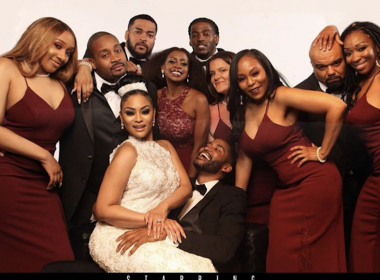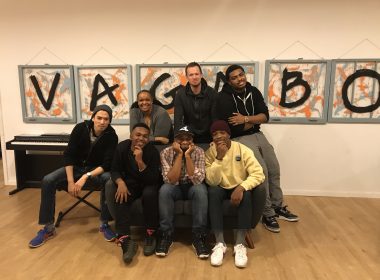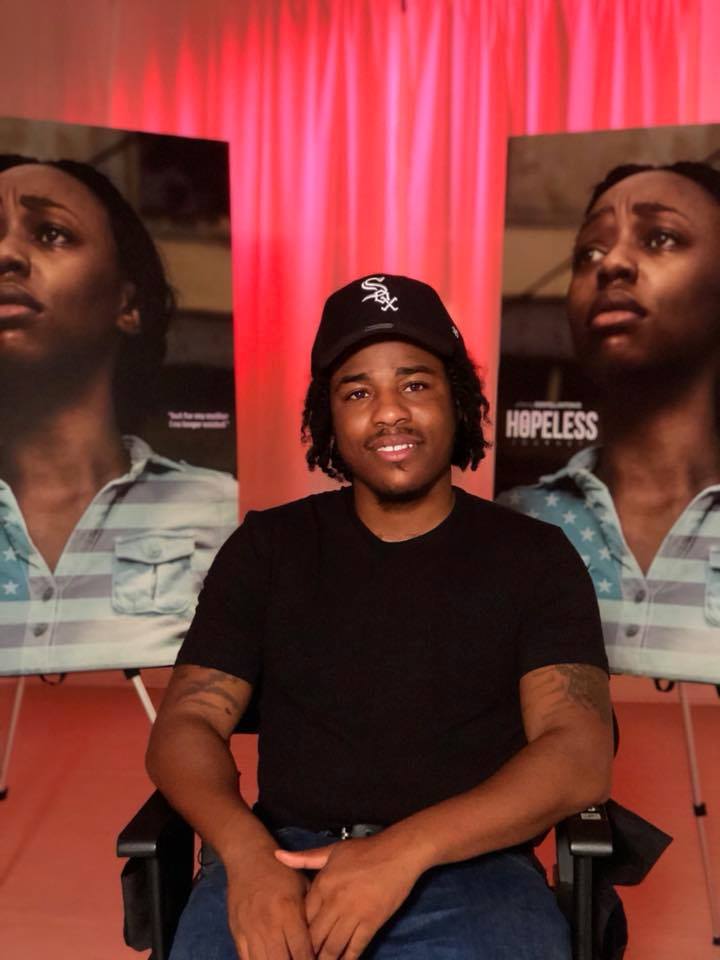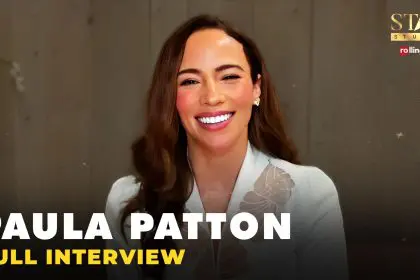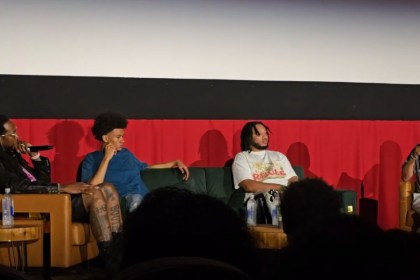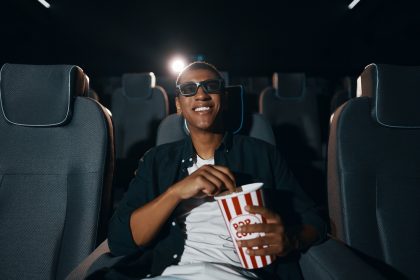During a recent interview with rolling out, Angela Hutchinson discussed her new film Hollywood Chaos, being a producer and shares what it takes to make a successful Hollywood movie.
What does it mean to be a producer of a film?
There are different types of producers in the film industry. There are producers who are on the creative side. They are responsible for bringing together elements such as the cast or developing the script. Then there are producers who focus more on the financial side in terms of raising the financing for a film. And finally, there are the main producers who oversee all aspects of producing the film from pre-production through post-production. This type of producer is the one who hires the director, approves the cast and make sure the project goes from script to screen. The producer is the boss, but often the director is most noted for the film because they are heavily responsible for the overall creative aspects and directing the actors to deliver amazing performances.
How does being a storyteller coalesce with being a producer?
A producer is indeed a storyteller just like the director and editor. Really all of the department heads are responsible for telling a story. The wardrobe tells the story through characters’ clothing. The editor tells a story based on how he edits the film. The actors in the film are storytellers. Making a film is a collaborative effort. So everyone apart of the film process in my opinion is a filmmaker, and filmmakers are storytellers.
How would you describe your producing style?
Very hands on problem solver. I tend to trust my department heads and rely on their expertise because I value the collaboration aspect of filmmaking. As a producer, I’m a drama-free person and whenever we had an issue, I quickly identified the problem and proposed a solution.
What made you want to have a role in making this film?
Well, I wrote the script, produced the film and cast the actors. It is the first feature film that I wrote so who else better to produce it then me. I did try at first to sell the screenplay. I came close a few times but in the end no studio was interested in buying the script. So a few years after working in the industry, I decided I would take on the role of a producer. I secured the financing, further developed the script within the budget, made a plan for production and oversaw the entire production from pre to post production.
Where were you when the idea for this project came to you? I was in Blockbuster (I know this dates me a bit, lol. I should say the Red Box). But nonetheless, I was in the video store with my mother trying to decide on a movie. After going up and down the aisles a few times, we couldn’t agree on a film. I explained to my mother that I wanted to see a movie about this reporter who has to uncover the secrets of her celebrity friends in order to advance in her career. She asked me what the movie was called, and after a short pause I said Hollywood, then said no, “Hollywood Chaos.” She said we should rent it. I was baffled by her comment and I explained that I just made up the movie idea. She said I should go home and write the movie. At the time, I had just earned my bachelor’s degree in Industrial & Operations Engineering from the University of Michigan. So making a film was not on my radar. But I took her advice. The next day I went to the mall and purchased the book, “How to Write a Movie in 21 Days,” by Vikki King. And that’s exactly what I did.
Why did you select the talent that you did for this film?
I selected Vanessa Simmons as the lead because I wanted a fresh face. I wanted to give an actress an opportunity to have a leading role when Hollywood hadn’t yet given them that chance. She had smaller parts in films but I thought she could really nail the role of Alexis because she as a celebrity has an innocence to her natural persona. I wanted a beautiful cast, eye candy but also talent. It was a blessing to find talented actors who also look fabulous on screen.
What was the most difficult part of making this movie and why?
Hmm, that’s a good question. I’ve learned to embrace difficulties because they strengthen one’s character. Without difficulties we wouldn’t have to rely on the help of others or God. I suppose the most challenging thing was raising the money. I produced the film using the SAG-AFTRA ultra low budget agreement, which means the budget had to stay under $200,000. When I first tried to produce the film, I wanted to make the film for $3M. But after casting several feature films and developing relationships with independent producers I realized that you didn’t need a million dollars to make a good film. We used private investors, Indiegogo and donations (both in-kind and monetary). It only took a few months to raise the budget but in the beginning it seemed so impossible. Also, we shot the film in 10 days so we had very tight schedule. And we shot the film in lots of locations. It was a challenge to adjust to being at a new location everyday and sometimes two locations per day. Additionally, it was difficult to be on set for 12 hour days and then come home to spend time with me two young children and husband. Thankfully my mother flew in from Chicago to stay with us throughout the production to help out wherever needed.
Who encouraged you to make this film?
My mother Antoinette, my husband Arthur and my best friend Sarah-Elizabeth. I also had a strong support systems of close friends, mentors and colleagues that were instrumentally in the process, especially the investors because without them I’d still be raising the money.
What did you gain that was most valuable from making this movie?
I learned that I want to direct my next movie. Since I didn’t go to film school and had no technical knowledge of what it took to make the film, I decided to hire a director. He was good at what he did, but I learned a lot from him. I now feel confident to direct my next movie.
Who are your mentors in the film business and how have you developed a process for them to share time and insight given everyone’s schedule in Hollywood.
I have several mentors including a VP at Turner, a VP at OWN, former VP at the Grammys and a celebrity philanthropist.
Name two of your favorite film directors and why?
I liked Bill Condon’s Dreamgirls because there was so much heart and emotion conveyed throughout the film. I can watch that movie over and over again, and each time it’s as if I’m seeing it for the first time. Amy Heckerling who directed Clueless is a very contemporary storyteller that knows how to truly connect with her intended audience. I also loved the Five Heartbeats that Robert Townsend director, very emotional film.




